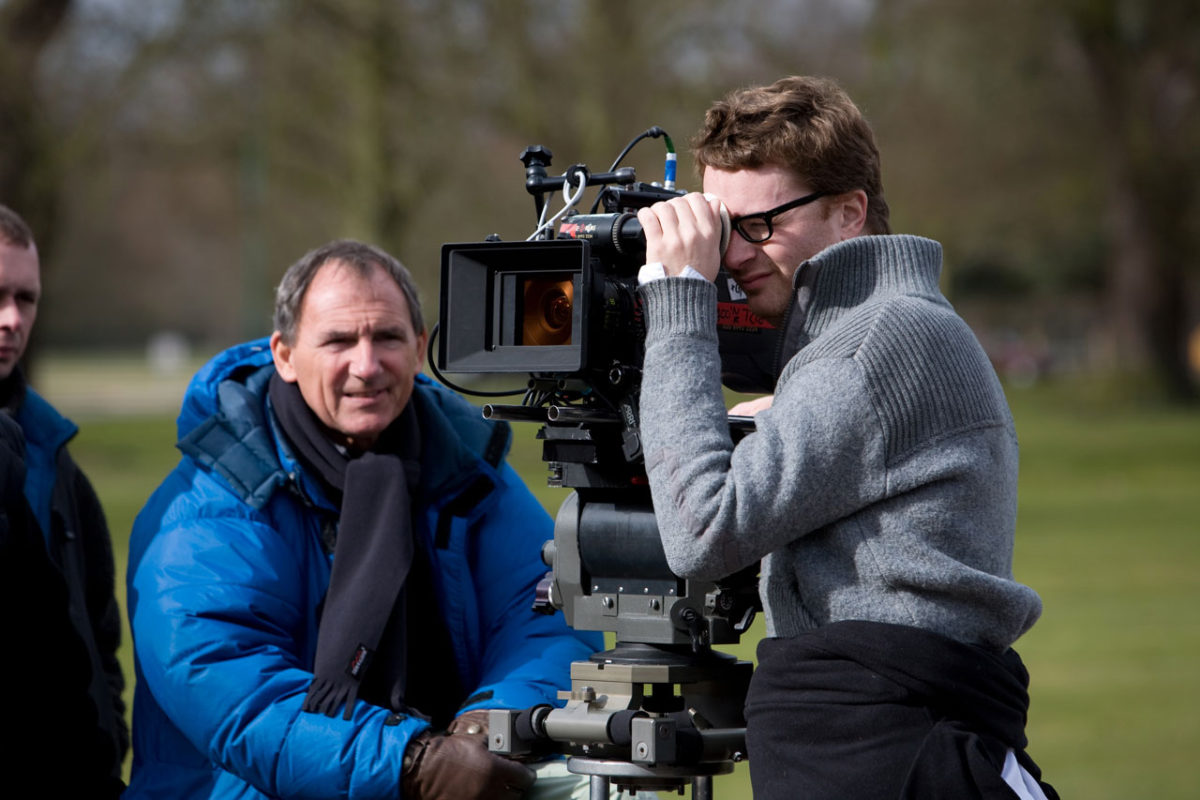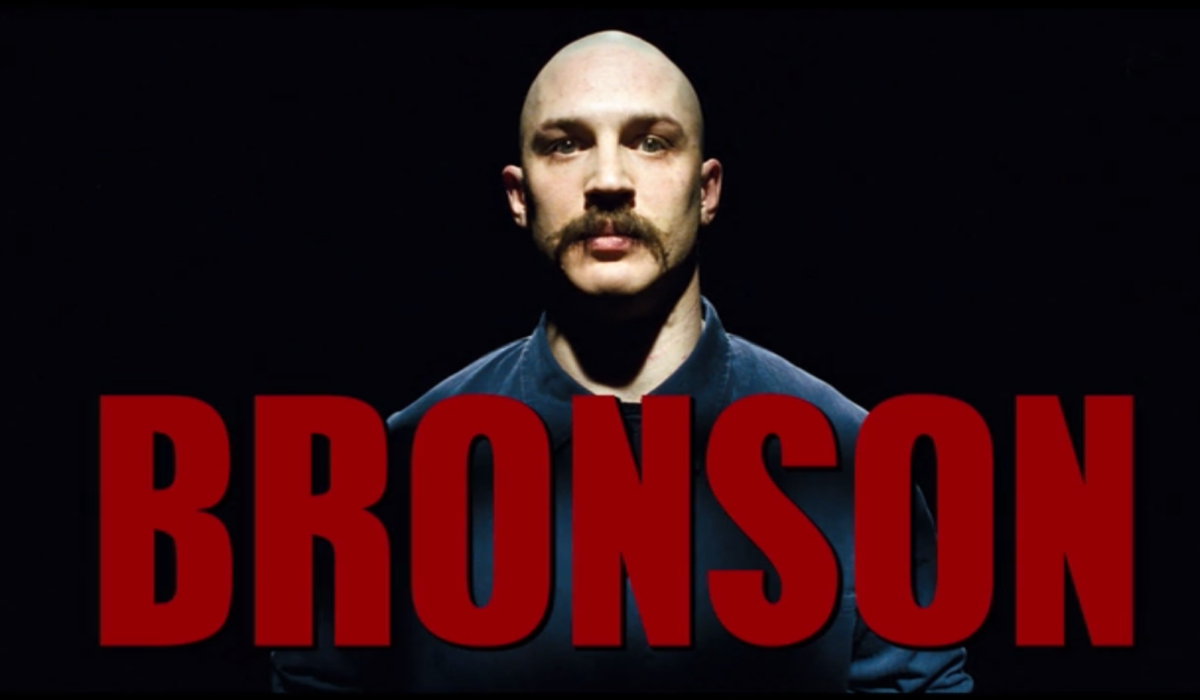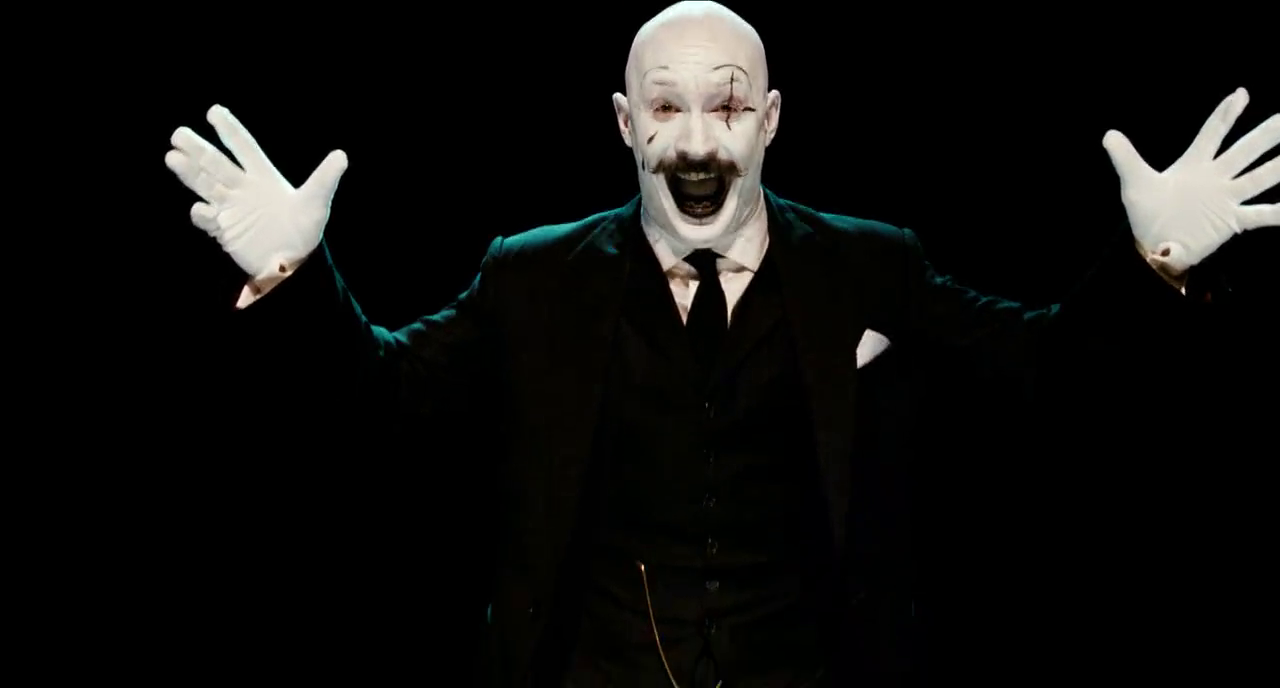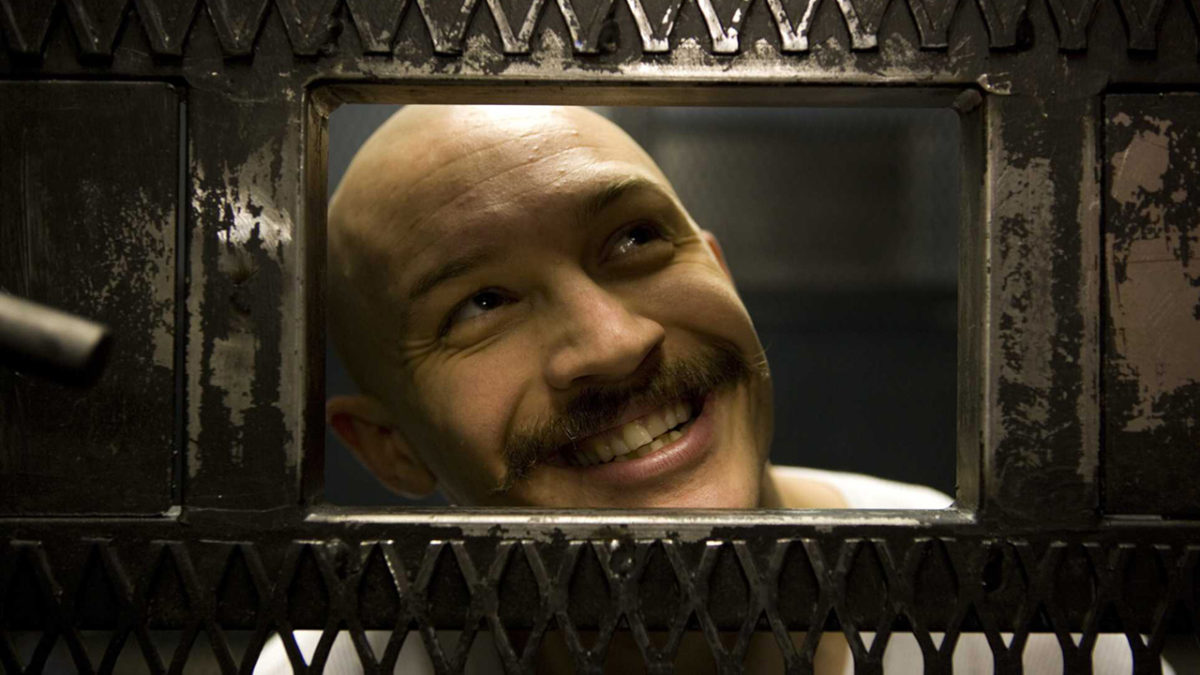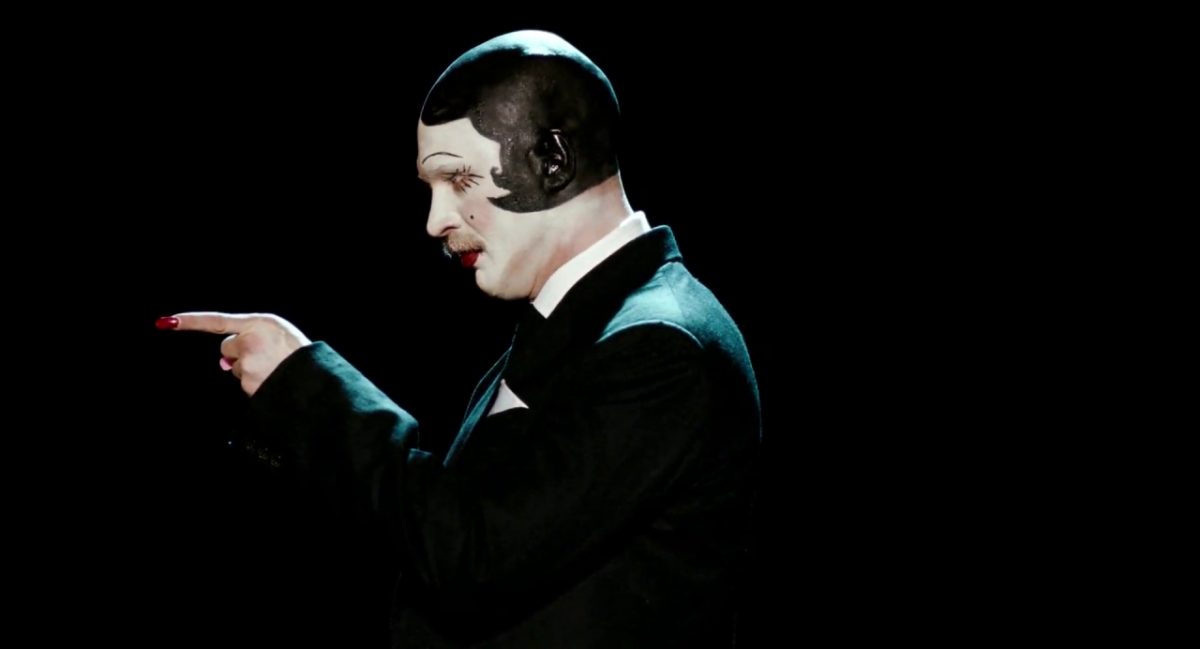A NIGHT WITH NICOLAS WINDING REFN
“Listen, kid. Finish film school and then we’ll talk.”
With fan favourites like DRIVE, ONLY GOD FORGIVES and the PUSHER series under his belt, director Nicolas Winding Refn has honed in on an impressive and unique style of filmmaking that defies genre conformity and fuses violence with fetishism; creating a thrilling viewing experience for his eager audience. With his 2008 cult classic BRONSON birthing much of his trademark style and flare, it comes with no surprise that fans flocked to the West End’s Picturehouse Central on September 2nd to revisit the stellar film, followed by an exclusive Q&A with Winding Refn himself.
BRONSON burst onto our screens seven years ago, with the UK’s poster boy for talent Tom Hardy staRring as Britain’s most violent criminal, Charles Bronson. The film takes a unique approach at the biopic genre, swapping traditional narrative for a theatrical and operatic storyline as Winding Refn allows Bronson to break the fourth wall of cinema, enticing the audience into a world of alter egos, extreme violence and the quest for fame. Instead of recalling Bronson’s life and actions in a manner of fact and truth, instead Winding Refn explores the inner workings of how Michael Peterson came to be the all consuming Charles Bronson.
As the Bronson credits roll, the theatre is buzzing with anticipation as we eagerly await Nicolas Winding Refn’s arrival. A short introduction from host Jason Solomons has settled any initial nerves of being in the presence of such an iconic director so when he casually makes his way to the front of the stage, there’s a comfortable familiarity mixed with electric anticipation. The film’s title graphics flicker in the background and the brilliant director laughs about how long it had been since the film had graced the silver screen.
“It makes me feel old. I saw it on Netflix and I thought it was very funny. It’s important for me in that it was a critical time in my life in terms of what I was going to do or not do and in the end I decided to make a very autobiographical movie from Charlie Bronson’s life. So it has a very emotional meaning to me and I’m just very happy that you all came out to watch it again, it makes me proud of doing something that is worthwhile. Also I want to thank my dear friend Rupert Preston who produced this film and is basically the reason why I am here because he released my first films and stuck with me after all these years, so it’s a great pleasure to have this opportunity.”
There’s a wonderful aura of quiet confidence about Nicolas, he’s very casual in his manner but the depth of his words ring loud with great knowledge. His fans lean in close at his every word, settling in for not only a lesson in filmmaking, but also an intimate and humorous insight into what really makes this creative guru tick. The echo of Bronson’s final musical score still rings through our ears as Winding Refn settles into his seat and he recalls how important music is when conjuring inspiration:
“Well as a child of the 80’s I’ve always liked electronic music and really the inspiration for Bronson was The Petshop Boys because there was a real operatic nature to their music, so I listed to a lot of that music when I was making the film,” he explains. “I even approached them afterwards about doing the soundtrack and they were very kind in coming to see the film but pretty much said ‘you can’t afford us, darling’; which was true, but it was a fun and entertaining idea so I decided to keep the classic approach but I very much like electronic music. A lot of my first film’s were about capturing reality and i was quite obsessed about that to the extent where all the drugs were real, it couldn’t get more real and I kind of lost interest with it at one point where I thought, well it can’t really get more real so I’ll do the opposite version and I became much more fetishized obsessed. From then on Bronson and the films that followed, especially Drive, were like a pinup magazine; really that’s what arouses me.”
One of the biggest reason BRONSON draws so much attention from film lovers, is the effortlessly creative way Winding Refn dissects the biopic genre and creates a truly remarkable form of non-fiction storytelling. The tremendous themes of entertainment, public approval and the desperate search for identity burst at the seams of each scene. Alongside this, strong themes of homoeroticism plant seeds of thought into some of the most standout moments and Winding Refn recalls how the final cut differs from how it had originally been presented in the script, noting on how he came to be in the position to make the film in the first place:
“Rupert Preston, who distributed and produced the film, he and I had been working together since I started making films and I was over here at a very depressing time in my life directing Miss Marpel for ITV. (Laughing) I needed the money. He (Preston) said ‘I know you’re trying to do this Viking thing but I’ve purchased the rights to Charlie Bronson’s story and I think it’s something for you’.”
With the director not entirely sure he was interested in making another violent movie, an unlikely ally convinced him otherwise” “My mother visited me while I was in London and she read the script by accident and mentioned that it was funny and it bit like me. So I read it and it was not very interesting in what it was saying but what was interesting was what it was not saying and there was a certain parallel element to things in his life and I thought if I’m going to make this movie what’s the ‘in’? Then I realised he was like me, he wants to be famous that’s the way in, that’s the drive for this; it’s fame. I didn’t really have much interest in Charlie Bronson, but I liked the concept of someone transforming themselves from Michael Peterson to Charlie Bronson in a sense of creating an alter ego, which is what a lot of creativity is really about. With that I came up with this whole stage performance of how he basically narrates his life as what it’s to be but I wanted to do it very operatic and theatrical because my Charlie didn’t just want to be famous, he wanted to be a legend, an extraordinary, he wanted to be a Country; that was the size of his ego.”
This idea of fame was not new to the director, he remembers with humour and fondness his own drive and hunger for fame and how that similarity influenced the way in which the story is told. “I remember when I was very young I didn’t just want to be famous, I wanted to be real fucking famous; I wanted to be so famous you couldn’t even imagine it and that kind of hunger he had, I could really identity with. So through that, the whole cabaret concept of how to change his gender because the real question, when it comes to character, is defining their sex life. The big thing from me when it came to Charlie Bronson was, why would a man willingly trade his sex life to stay in a cage, what propels you to do that and of course he was more in love with his alter ego then he was in having a sex life or a love life. So that’s why everything became very heightened through sexuality, both heterosexual and homosexual.”
The level of violence within Bronson is fairly shocking as Winding Refn literally pulls no punches. However, with it being detrimental to the film’s main narrative, there’s a raw glamour to the extent in which it features; almost as its own separate character. It’s almost cathartic in it’s viewing, releasing a repressed fantasy of glorious chaos. This is not uncommon within the rest of Winding Refn’s films and he takes a moment to consider the continuing appeal: “All drama is based on two things, sex and violence. That’s what fuels a character when you creating someone; you can boil it down to that. I find sexuality much more exciting if I don’t see it and it’s also something that we all do so it doesn’t really interest me to portray it very much. Violence is the same kind of relief but in a different way and that’s something we fantasize about but, because we don’t do it, we tend to fascinate and fantasize about it. I always say that the act of creativity is an act of violence because it’s meant to violate and penetrate but through art it doesn’t destroy like it does in the physical world. That’s why it always have a conscience in my films, it always destroys and nothing good comes from.”
The director took the time to reminisce about his experience when working with leading man Tom Hardy and how it relates to working with the likes of Ryan Gosling and Mads Mikkelsen, describing just how collaborative the filming process is: “Well, film making is a directors medium in the end and every actor is different. I’ve been very fortunate to have worked with such wonderful people. I mean Mads, Ryan and Tom Hardy are probably some of the most talent people out there in contemporary film and I’ve been lucky enough to work with them at a very specific time in both my career and their careers and it’s been a great pleasure. Each one has been different and you approach each one in their terms of how they like to work.”
He continued to discuss how his style of directing affects the people he works with, paying specific attention to Ryan Gosling; whom he worked with on DRIVE and ONLY GOD FORGIVES. “Directing is also manipulation and I shoot all my films in chronological order and that means that films usually change around 50% from the script stage and when it gets to editorial it changes another 50%. So there’s a constant fact of evolution and I love the fear of not really knowing how it’s going to turn out. That can be frightening for certain actors, they fear that sense of uncertainty. With me, there is no choice, it’s just the activity of movement and all three actors are very different in approaching that method but it’s been a great pleasure each time for me. I suppose with Ryan Gosling, we were more interlinked because of other reasons so that was more of a unique experience between us. We’re very similar in ways, we have a lot of things in common so there was almost a sense of homoeroticism than with the other two.”
Focussing again on Bronson, it’s interesting to see just how much Winding Refn thinks of his leading man, Tom Hardy. Since Bronson, Hardy has gone on to become a pioneer of British talent and has starred in the likes of INCEPTION, WARRIOR, MAD MAX and recently LEGEND, where he stars as both Kray twins. When asked about just how much play he’s had in boosting Hardy’s career, Winding Refn comically claimed to be “an asshole” if he were to answer such a question. He did however go on to gush about Hardy’s acting abilities.
“I think Tom Hardy is an absolutely extraordinary actor and it was a strange way that we got to this because I originally offered the role to Jason Statham. At first I met with him before he read the script and he was really in to this idea of a prison fight movie and then he read the script and was like “yeah, that’s not going to happen”. So it then went to Guy Pearce, who was very nice but actually we never heard from him again. Which usually means a no. Then by that time we were getting closer to our start date but had no leading man. I had met Tom Hardy before but it didn’t really click between us when we firs met. I was looking at other actors and I couldn’t find anyone that I felt could do it and the casting director suggested Tom so we met again just the two of us and of course, he was Bronson. What he did with Bronson was so extraordinary and so brave, he was great to work with and i lot of fun. He’s one of those people that are so great to work with. He’s so dedicated, he gives you his heart and soul, which is a lot of responsibility and it can feel like a tornado of emotions washing over you, but with that comes great opportunity because he’s fearless; which is why he’s able to do these fantastic performances. It was an incredible opportunity for us to do this together.”
Amidst the chaos and the glorious violence, there are true moments of basic human behaviour within the BRONSON narrative. Whether its through humility or love, Winding Refn captures some very vulnerable behaviour from such an untouchable man and it seems there is a real interest in finding weakness from strength for the director. “For me it was important to have moments of intimacy because weakness is really what we identity with when we watch a movie. Strength we admire, its fantastic to look at and what we wish we were like but weakness is what we really identify with. There’s a lot of weakness in Bronson because he’s human just like everyone else and it was important to have that balance otherwise it becomes just one noted.”
With the director shedding such fascinating light on an old favourite like Bronson, it’s no doubt that his faithful fans and our exceptional host are eager to mention his up and coming projects. Not only does Winding Refn have a new female-lead feature in the pipeline, fronted by the brilliant Elle Fanning, but he has published his very first book; a quirky look at some of films forgotten posters that study the state of exploitation from the 1950’s-1970’s. The director recalls just how these fascinating posters came into his possession:
“I had a friend who I was cleaning out his cellar and he offered me these posters and eight weeks later around 1000 posters turn up and my wife was like ‘really?’, but I hadn’t heard of the movies but it became like a time travel into another era that is very much gone. So this concept of a coffee table book became an opportunity to take what we consider trash now and making it into high art.”
This is not a concept unknown to the director and it was interesting to hear just how much that kind of content influenced his work in film: “Well, I like all kinds of films, but when I was younger I grew up in New York the only way to rebel against my mother, who had photographed the likes of Jimmy Hendrix, it was difficult to do something to make her angry. I found out the one thing she did not like was American capitalism, Ronald Ragan and American violent movies. Those three things became my favourite things for a number of years and that’s why I would seek out a lot of these more offensive exploitation films when I was young, it was a way to rebel. I couldn’t rebel with the Ramones but I certainly could rebel with Death Wish.”
Before the room erupts with more questions, it’s clear our time with Winding Refn is up and as the lights glow bright again, a sense of satisfaction in our newfound knowledge washes over the audience. As the cold air of Piccadilly sobers one from a Bronson-enduced coma of vibrant thoughts, Winding Refn coolly makes his way to the bar, not quite aware of the buzz that follows him.


